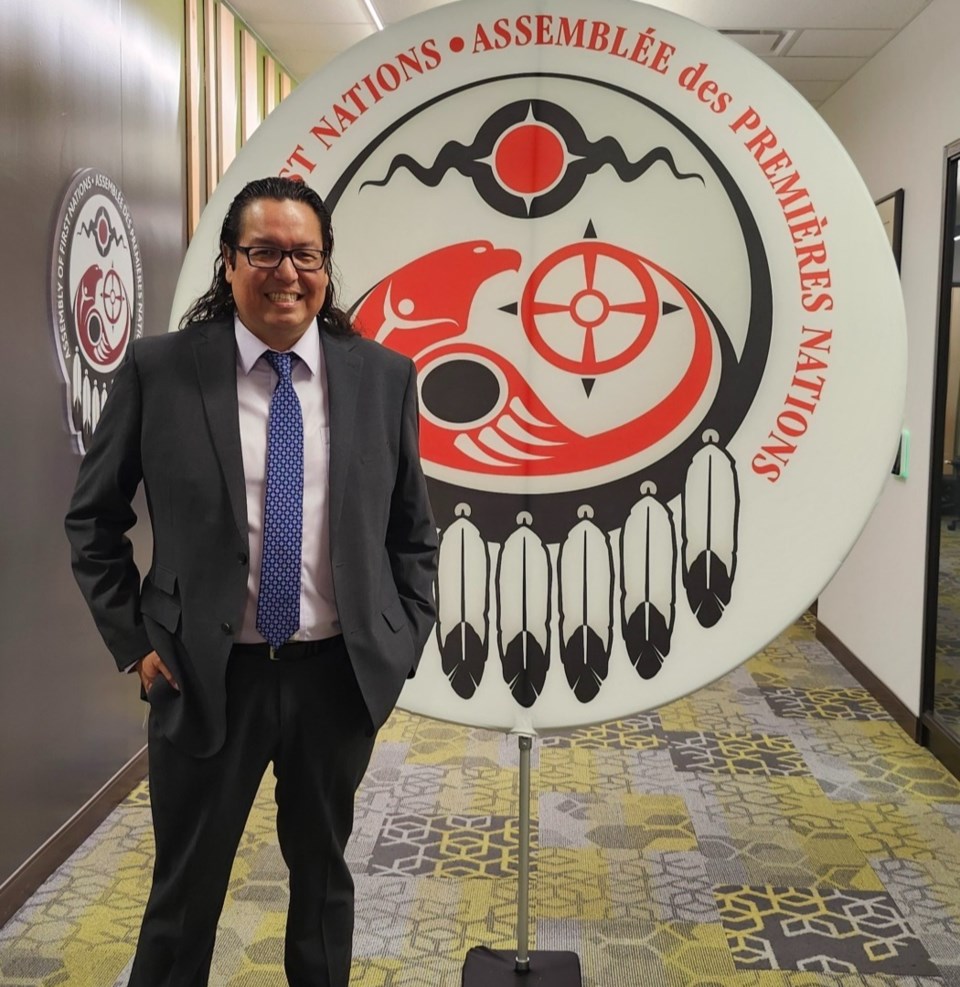WARNING: this story contains references to suicide.
ONIGAMING — “We just don't want to be left behind.”
Ojibways of Onigaming First Nation Chief Jeffrey Copenace said he feels he was able to bring to federal leaders his concerns about what the government’s Building Canada Act and stated focus on economic and infrastructure development could mean for his community. Copenace was one of hundreds of First Nations leaders in Gatineau for the July 17 summit, sparked by widespread opposition to parts of Bill C-5.
Copenace said he met Prime Minister Mark Carney for as much time as a quick handshake, but spoke to senior ministerial staff and Environment and Climate Change Minister Julie Dabrusin.
“I was able to express all of those different issues that we're facing in Onigaming right now, and they said that they heard us, they said that loud and clear,” Copenace said. “My main message to the Prime Minister is that there are communities that are in states of emergencies like Onigaming that just don't want to be left behind.”
“And that's what it feels like is happening — that the rest of the country is moving forward with this ambitious agenda to build Canada,” he continued. “At the same time, there are First Nations that are facing third-world levels of poverty, third-world levels of death and mortality rates in their communities, and we just need the supports that other Canadians take for granted.”
That includes help around things like healthcare, mental health and addictions and for youth, he said.
“These are the things that will make a difference to help us catch up with the rest of the country.”
Onigaming is in a decade-plus-long state of emergency that was initiated in 2014 over multiple suicides. Copenance said in the past four years alone, the community of about 900, located southeast of Kenora, has suffered 46 deaths due to a number of causes, with the most recent in mid-July, just before the summit.
Copenace said he’s not convinced Bill C-5, the way it is written, will accomplish what his community needs, adding that, while he and other leaders aren’t opposed to economic development, it can’t be at the expense of fixing a slate of longstanding health, social and other issues in many Indigenous communities.
Other First Nations leaders from the Northwest also took issue at the summit with the sweeping powers the act appears to give Ottawa and the lack of consultation done when drafting the legislation.
Ginoogaming Chief Sheri Taylor, in comments posted to social media by the Nishnawbe Aski Nation, again called for the repealing of two sections of the Building Canada Act, which opponents to the legislation say give the federal government “unrestricted power” over projects deemed to be in the national interest.
“For First Nations’ economic prosperity, we need to be on equal footing,” Taylor said. “You need to address the basic human rights of our people in our communities. You need to address the basic economic infrastructure needed in our communities.”
Ginoogaming is one of nine First Nations taking the federal and Ontario governments to court over both levels of governments' new economic development legislation.
In a presentation to a working session during the summit, Wunnumin Lake First Nation Chief Archie Wabasse raised concerns about the lack of input First Nations had during the drafting and passing of Bill C-5.
“We oppose the legislation not because we oppose progress, development and trade, but because we have been excluded from decisions that affect our lands, our waters, our rights, and our future,” he said in comments posted by NAN to social media.
“This law (Bill C-5) was drafted without us. It was debated without us. It was passed without us, and now we are being asked to respond to it after-the-fact under the guise of discussion when the law is already enacted.”
Copenace said he commended Carney for the time he spent at the summit.
“The chiefs from the country got to spend a full day with the Prime Minister, as well as cabinet ministers, and I think that showed some real dedication,” he said. “At the same time, because you've got about 600 chiefs all together in one room, it was limited in how much you could really participate.”
What happens next is crucial, Copenace said, meaning federal officials following through on conducting specific regional engagement.
“He committed to continuing the conversation, and we're eager to do that as well, but it should be really specific,” he said. “It should be First Nation in nature, and again, we really want to see the same issues that we brought up, brought to the table.”
If you or someone you know is struggling, help is available through Canada's Suicide Crisis Helpline (call or text 988), Kids Help Phone (1-800-668-6868; text 686868; kidshelpphone.ca), and the Canadian Association for Suicide Prevention (suicideprevention.ca/resources).
